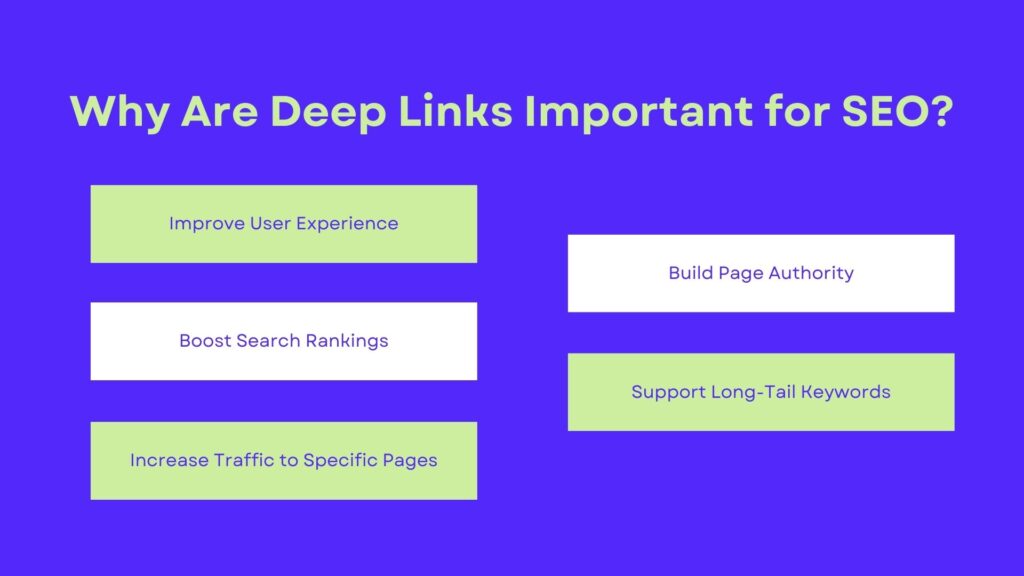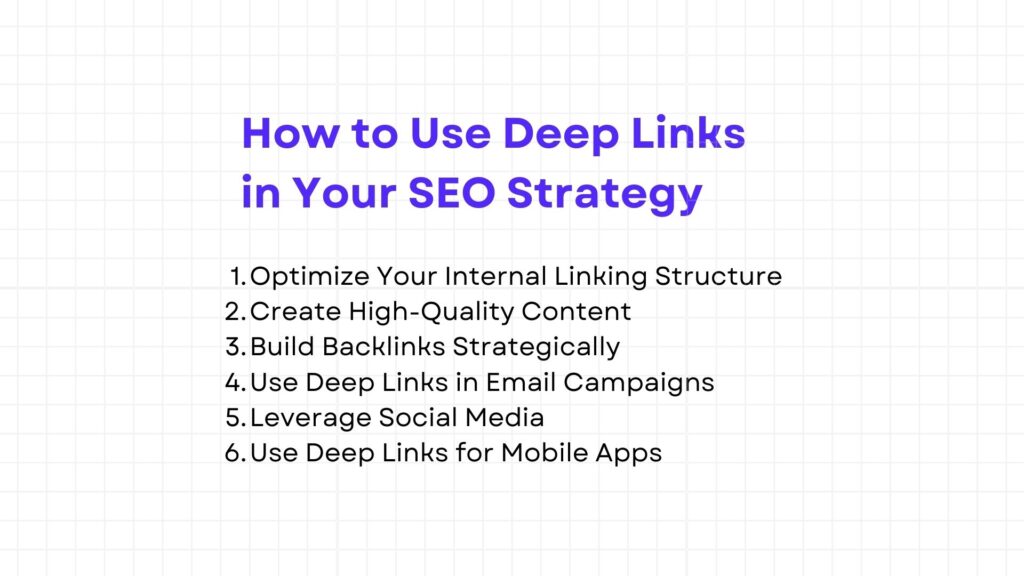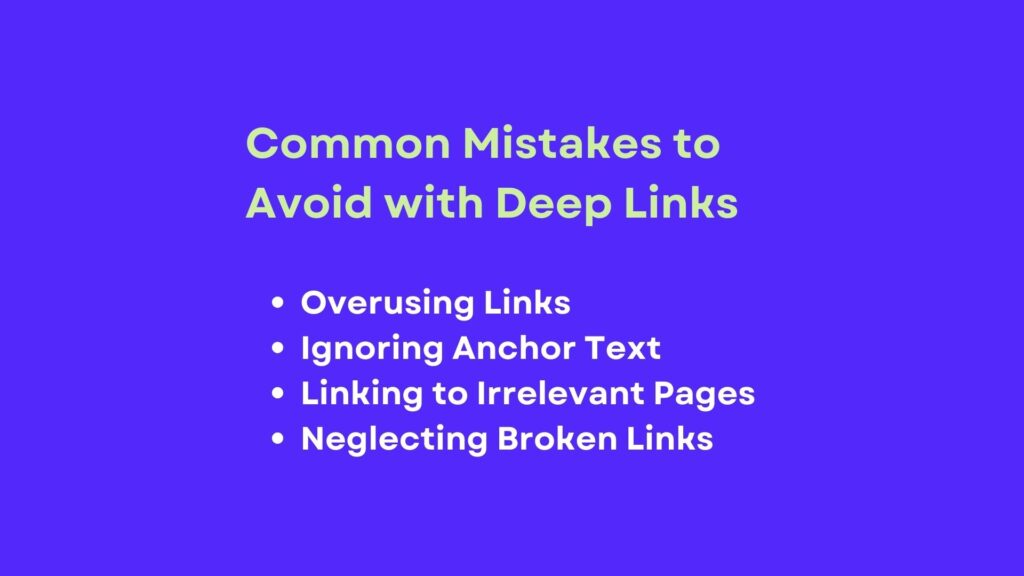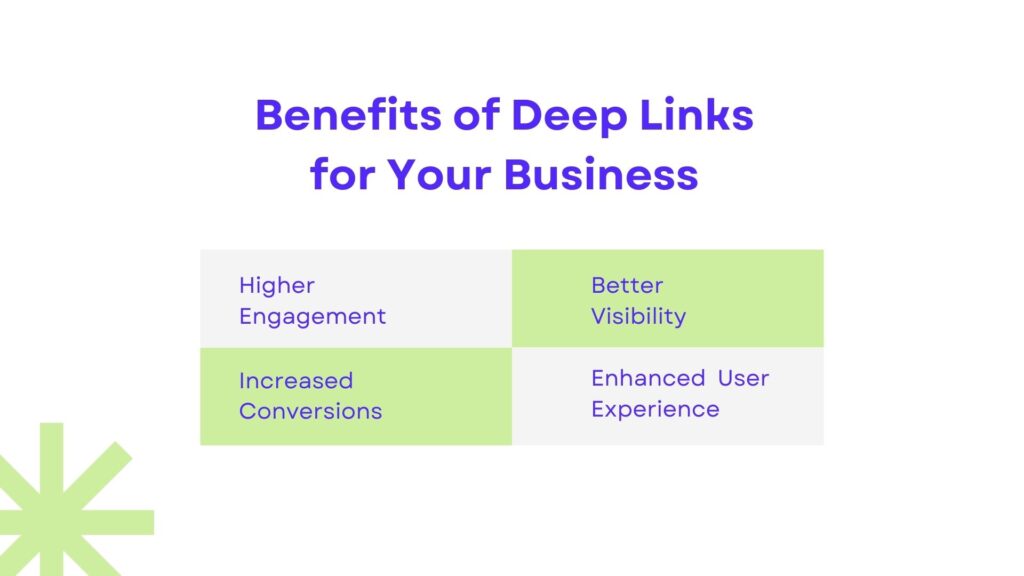The Importance of Deep Links in Your SEO Strategy

When it comes to improving your website’s search engine rankings, SEO (Search Engine Optimization) is more than just targeting keywords. One crucial yet often overlooked part of a strong SEO strategy is using deep links. These are not just regular links to your homepage but links that direct users to specific pages or content within your website.
In this blog post, we’ll explore what deep links are, why they matter, and how to use them effectively to enhance your SEO strategy and drive more traffic to your site.
In this article:
- What Are Deep Links?
- Why Are Deep Links Important for SEO?
- How to Use Deep Links in Your SEO Strategy
- Common Mistakes to Avoid with Deep Links
- Benefits of Deep Links for Your Business
What Are Deep Links?
A deep link is a hyperlink that points to a specific page, post, or piece of content on your website instead of your homepage. For example:
- A regular link to a website’s homepage: www.example.com
- A deep link to a specific product page: www.example.com/products/smartphones
Deep links help users find exactly what they’re looking for without having to navigate through multiple pages. They’re especially helpful for large websites, such as online stores, blogs, or news sites.

Why Are Deep Links Important for SEO?
Deep links play a critical role in SEO because they make it easier for both users and search engines to access and understand your content. Here’s why they’re so important:
1. Improve User Experience
When users click on a deep link, they’re taken directly to the page they’re interested in. This saves time and makes their browsing experience smoother. A better user experience means visitors are more likely to stay on your site, explore further, and convert into customers.
Instead of directing users to your homepage and asking them to search for a blog post, a deep link takes them straight to that post, boosting direct traffic.
2. Boost Search Rankings
Search engines like Google prioritize websites that offer a good user experience. Deep links make it easier for search engine crawlers to discover and index all the pages on your website. When more of your pages are indexed, you have a better chance of ranking for multiple keywords.
3. Increase Traffic to Specific Pages
Deep links drive targeted traffic to specific pages, such as blog posts, product pages, or service descriptions. This is especially useful if you want to promote certain content or encourage users to take specific actions, like making a purchase or signing up for a newsletter.
4. Build Page Authority
When other websites link to your internal pages (using deep links), it helps distribute link equity or link juice throughout your site. This increases the authority of not just your homepage but also your individual pages, improving their chances of ranking higher in search results.
5. Support Long-Tail Keywords
Deep links are perfect for targeting long-tail keywords—specific phrases that users search for, like “best running shoes for beginners.” By directing traffic to pages optimized for these keywords, you can attract highly relevant visitors and increase your chances of conversion.

How to Use Deep Links in Your SEO Strategy
Now that you understand the importance of deep links, let’s look at how to incorporate them into your SEO strategy effectively.
1. Optimize Your Internal Linking Structure
Internal links connect different pages on your website. Using deep links in your internal linking structure helps guide users to relevant content and spreads link equity across your site.
If you mention a blog post in another article, link to it directly with a descriptive anchor text like “Learn more about healthy meal plans.”
Tips for internal linking:
- Use descriptive, keyword-rich anchor text.
- Link to relevant pages naturally within your content.
- Avoid overloading a page with too many internal links.
2. Create High-Quality Content
The best way to earn deep links from other websites is to create valuable content that people want to share and reference. Focus on:
- Informative Blog Posts: Answer common questions in your niche.
- How-To Guides: Provide step-by-step instructions for solving problems.
- Unique Research or Data: Share original studies or industry insights.
When your content is helpful and engaging, other websites are more likely to link to it.
3. Build Backlinks Strategically
Backlinks from other websites to your internal pages are a great way to strengthen your deep linking strategy. Use these tactics to earn backlinks:
- Guest Blogging: Write articles for other websites and include deep links to relevant pages on your site.
- Outreach: Reach out to bloggers, journalists, or influencers and suggest linking to your content.
- Broken Link Building: Find broken links on other sites and offer your page as a replacement.
4. Use Deep Links in Email Campaigns
When sending newsletters or promotional emails, include deep links to specific pages. For example:
Instead of linking to your homepage, link directly to a new blog post, product page, or promotional offer. This drives more targeted traffic to those pages.
5. Leverage Social Media
Share deep links to specific content on your social media platforms. For example:
- Post a direct link to your latest blog post on Twitter.
- Share a product page link on Instagram with a clear call-to-action.
Deep links ensure that social media followers land exactly where you want them to go.
6. Use Deep Links for Mobile Apps
If your website has a mobile app, deep links can direct users to specific content within the app. This improves user experience and encourages app engagement.

Common Mistakes to Avoid with Deep Links
While deep links are powerful, there are a few mistakes you should avoid:
1. Overusing Links
Don’t overwhelm your content with too many deep links. This can confuse users and make your content look spammy. Focus on quality over quantity.
2. Ignoring Anchor Text
The anchor text for your deep links should be descriptive and relevant. Avoid using generic terms like “click here.” Instead, use keywords or phrases that describe the linked page.
3. Linking to Irrelevant Pages
Only use deep links that add value to the user’s experience. Linking to irrelevant or unrelated pages can frustrate users and harm your SEO.
4. Neglecting Broken Links
Broken links can hurt your SEO and frustrate users. Regularly check your website for broken links and update or fix them as needed.

Benefits of Deep Links for Your Business
Prioritizing deep links in your SEO strategy can lead to several benefits for your business:
1. Higher Engagement
By directing users to specific content, you boost user engagement and encourage them to explore more of your website.
2. Increased Conversions
Deep links guide users to the exact pages where they can take action, such as making a purchase, signing up for a service, or downloading a resource.
3. Better Visibility
With more pages indexed and ranked on search engines, your website has a higher chance of reaching your target audience through boosted online visibility.
4. Enhanced User Experience
Deep links reduce frustration by helping users find what they need quickly and efficiently, leading to greater satisfaction.
Dive Deep into Deep Links
Deep links are a vital part of any effective SEO strategy. By guiding users to specific pages, improving your internal linking structure, and building backlinks to internal content, you can enhance user experience, increase traffic, and improve your search rankings.
Unlock the full potential of deep links with Link Genius, the ultimate platform for smarter, more effective outreach. Build high-quality backlinks that target specific pages on your site, boosting your rankings, driving targeted traffic, and improving user experience.
